An imposing stone gatehouse sits at the entrance to the village of Millbrook, giving just a hint of what lies behind it: a magnificent turn-of-the-century estate, created in true robber baron style by Charles Dieterich, founder of Union Carbide.
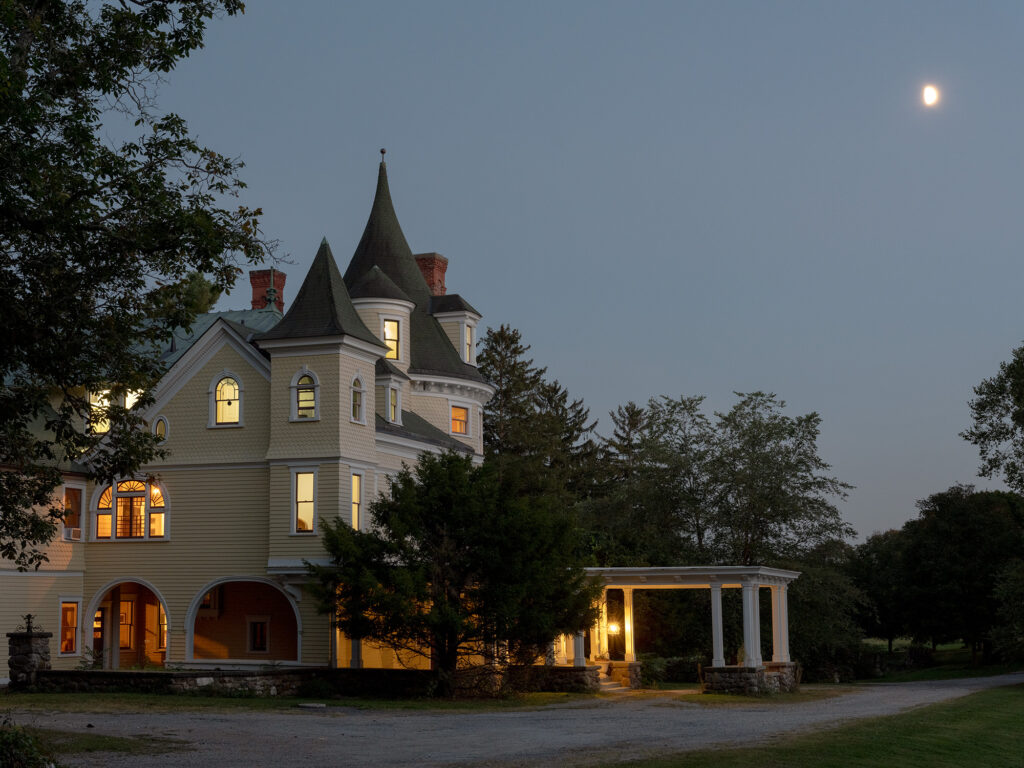
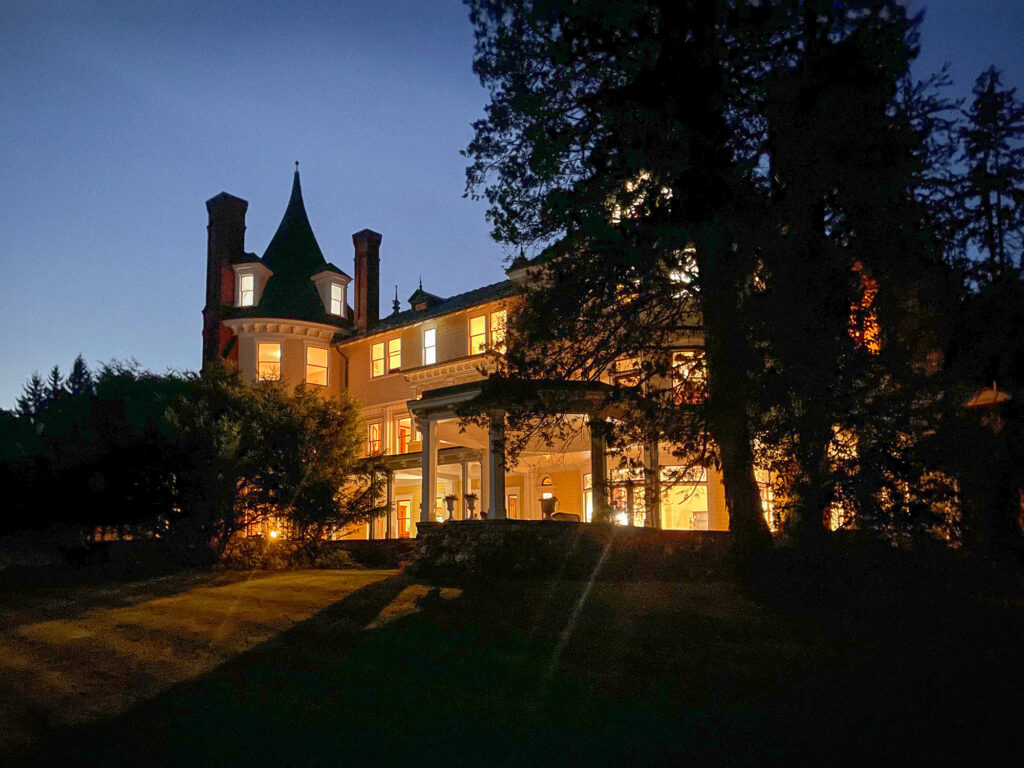
Over the course of nearly 40 years, from 1889 to 1927, Dieterich bought up surrounding properties until he amassed more than 2,000 acres. Channeling a European aesthetic, he built massive stone barns, farmhouses, walls, bridges, woodland pavilions, and the gatehouse, all made of local fieldstone. It’s a profusion of impressive stonework punctuating the landscape.
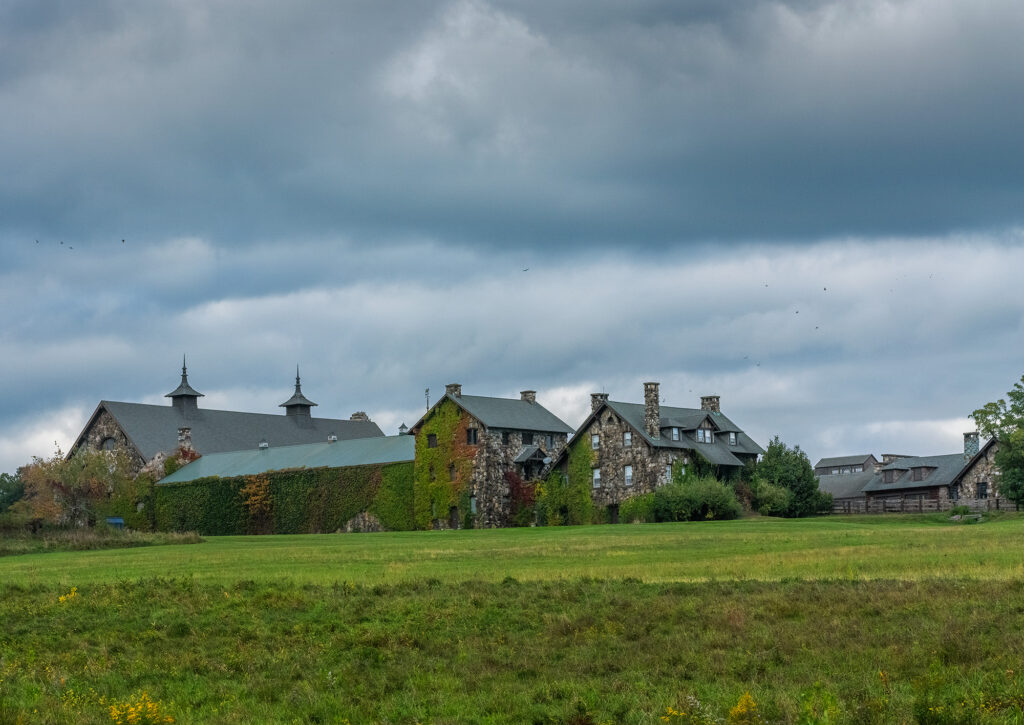

His residence was a rambling, turreted, clapboard-and-shingle Victorian, with a wrap-around porch. Inside, four or five staircases access the maze of 38 rooms. He called it Daheim (“at home” in German). Nearby, a curious stone and wood structure looks like it was removed from Germany centuries earlier, and dropped in the woods. Turns out it houses a one-lane bowling alley with a guest suite above.

In 1912 Dieterich would pivot to a different aesthetic when he hired Addison Mizner to design The Bungalow, a residence he built for his son. Mizner was just starting his career, and The Bungalow is an early iteration of the Palm Beach mansions for which he would become famous. More than a hundred years later, it still looks like a glamourous Hollywood movie set from the Fred Astaire era, with an enormous stone water fountain in the game room, a dark wood-beamed ceiling in the great room, gloriously wallpapered ensuite bathrooms with their original fittings, and an ivy-draped terrace overlooking the pool.
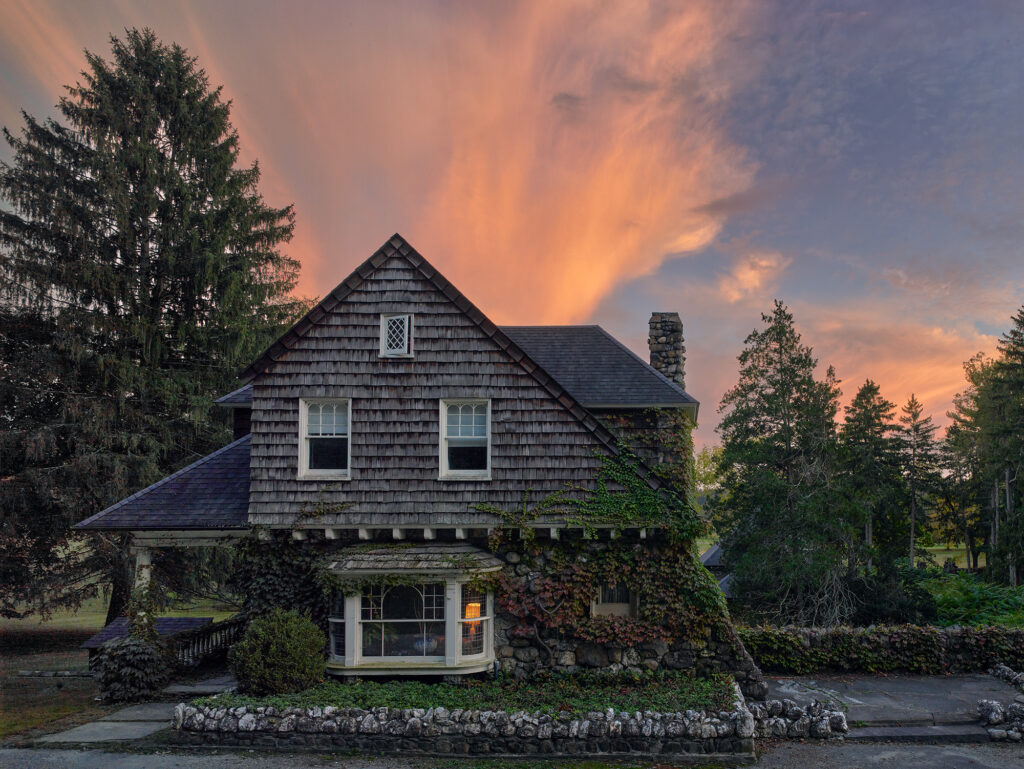
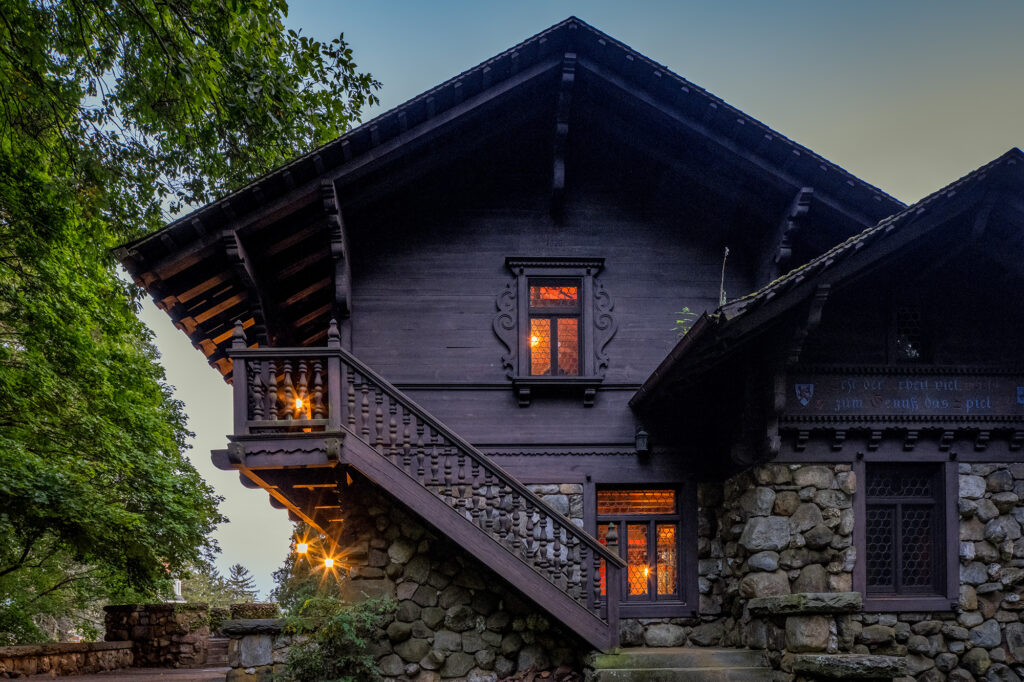
Dieterich died at Daheim in 1927. The property was then sold to a group of investors, who used the land for shooting and hunting. It didn’t come on the market again until 1961. Tommy and Billy Hitchcock (heirs of the Mellon banking family) bought it in 1963. “Between Dieterich’s time and our buying it, much of the property had been let go,” Billy says. “We bought it as an investment and as a farm to raise cattle.” At one point they had more than 400 head.
Instead of using the Victorian-style mansion, the family preferred to stay in The Bungalow; tucked in behind a stand of pines, it offered privacy and quiet luxury. Daheim was left to weather the changing times. It went through an intense hippie phase when Timothy Leary, the controversial Harvard professor, took up residence for a few years, leaving behind graffitied walls and psychedelic paintings on the bathroom tiles. Assorted other tenants passed through, until finally it was boarded up in 1970.
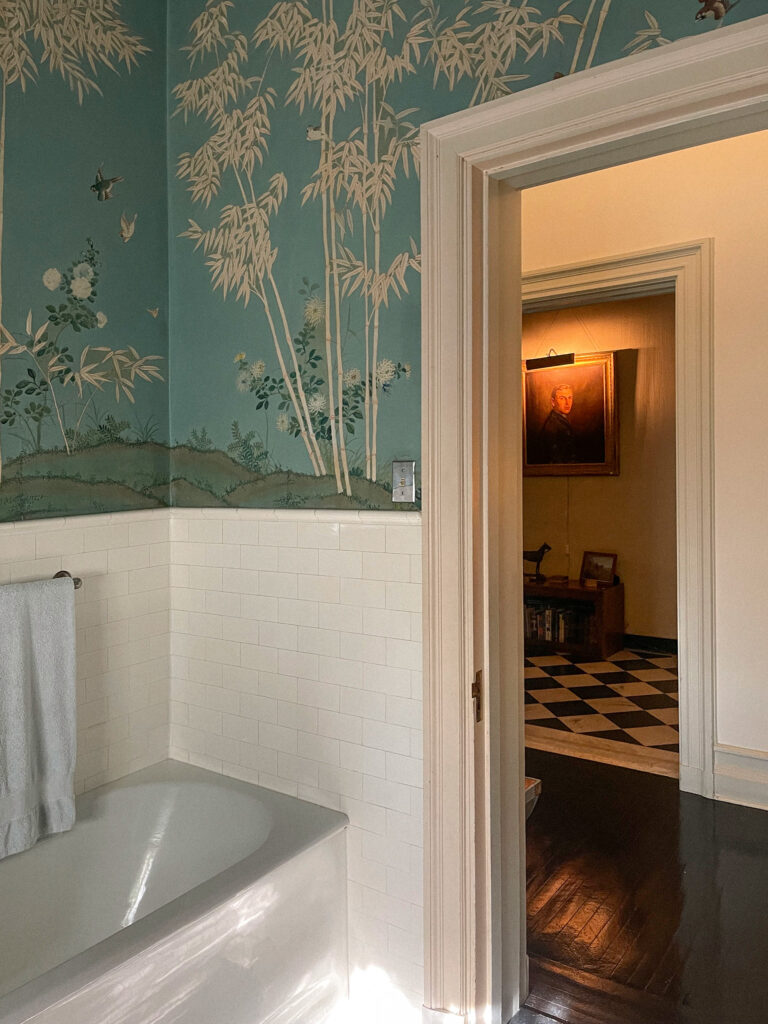
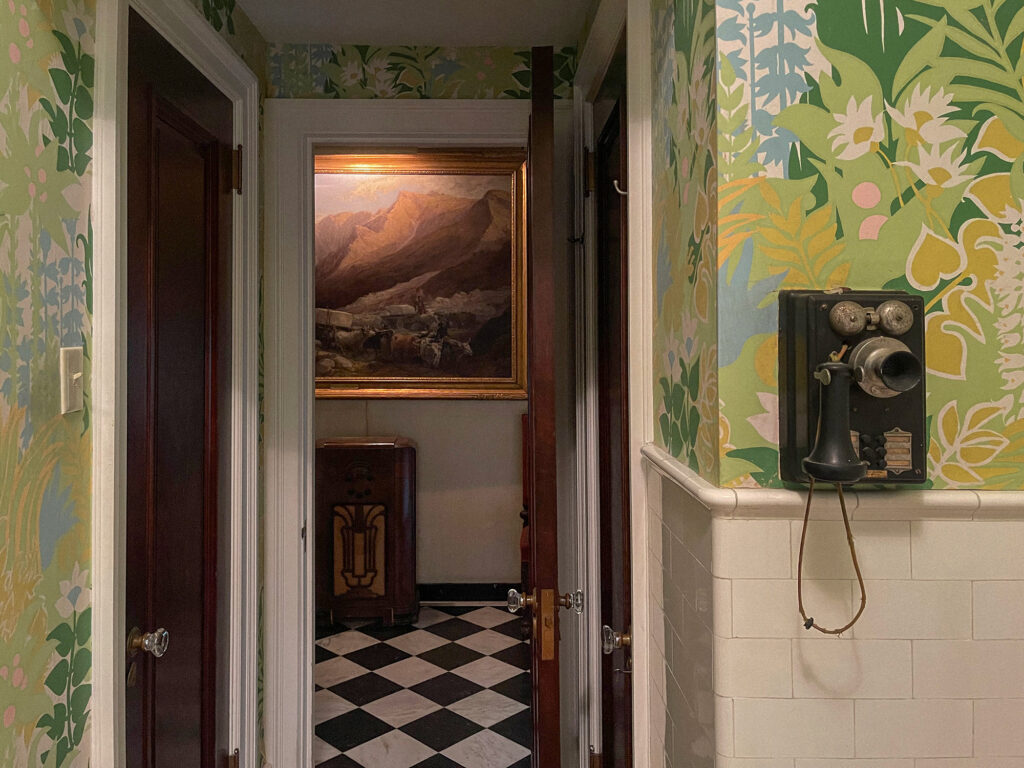
Then in 1982, John Foreman, author of Old Houses in Millbrook, and an avid Millbrook Hunt member, rented it for one dollar a year in exchange for upkeep and maintenance. It was a project that continued for more than 30 years, until his death. His appreciation of the house ran deep; one of his great joys was riding out with the hunt when it met at Daheim, something it continues to do.
Most properties go through shifting fortunes, rising and falling based on the attention, or lack of, that owners or custodians bring to a property. When the Hitchcocks hired Helen Portaro to be their housekeeper no one could have foreseen that it would be the beginning of four generations of her family living and working on the estate.
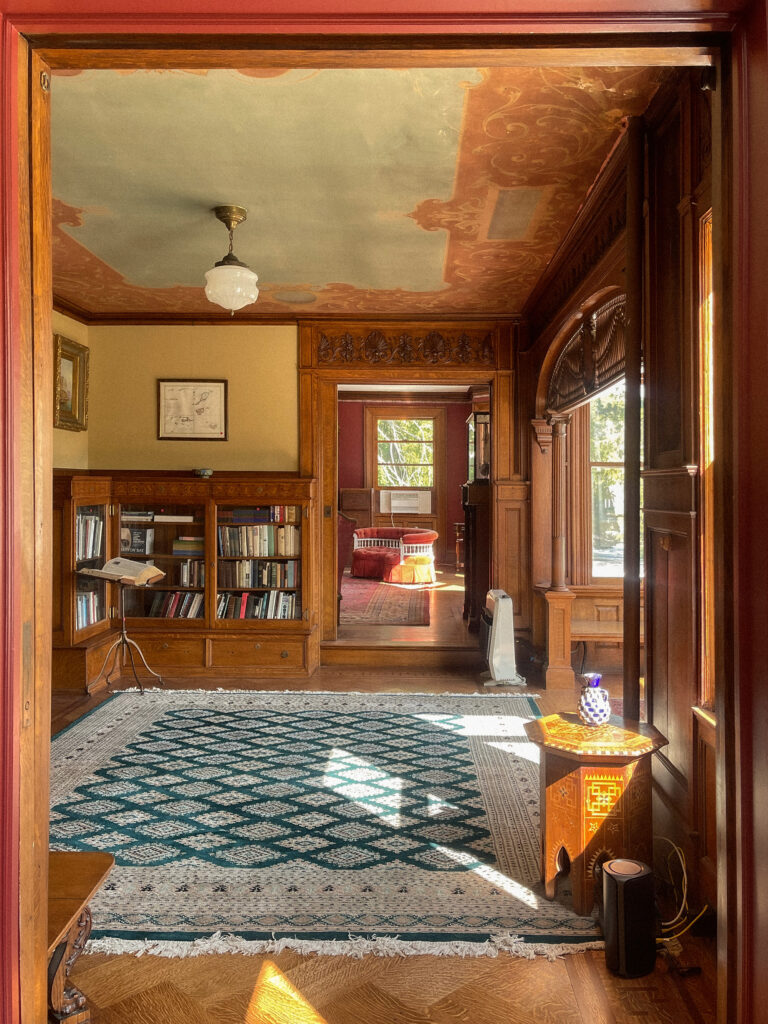
“My grandparents came over from Scotland. My grandfather was a gardener and Nana cooked and cleaned for the family,” says Deanna Portaro Wohlford, Helen’s daughter. “From when I was 11 years old, I would help my grandmother, and then roam around the estate with my friends. We fished off the Sunny Bridge, had sleepovers in The Bungalow, and would go look for the Lost Lake. My friends couldn’t believe I lived here.”
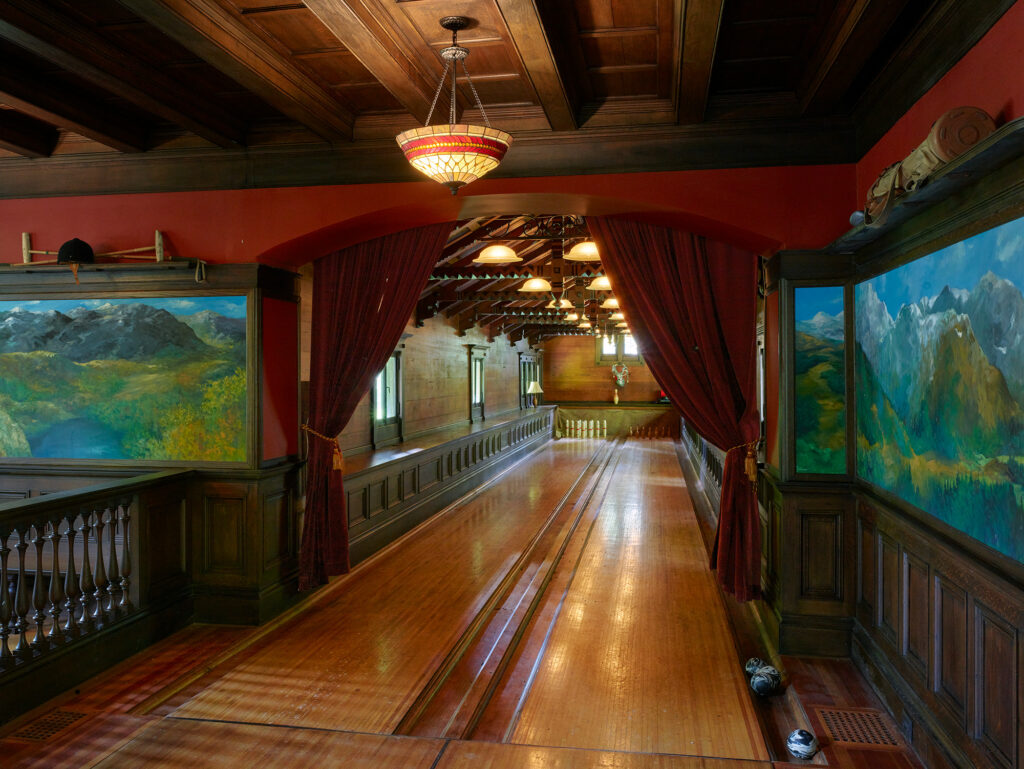
Wohlford is still working on the estate today, as is her son. The Hitchcocks prized hard work and loyalty. “And they didn’t like change. They didn’t redecorate, and they never fired anyone,” she says.
After Tommy died in 2023, Billy put the property up for sale for $65,000,000 with Heather Croner Real Estate. Now, change is inevitable, and the future of the estate remains to be seen.
By Tara Kelly
Photos by Andrew Moore


